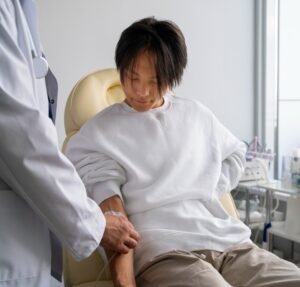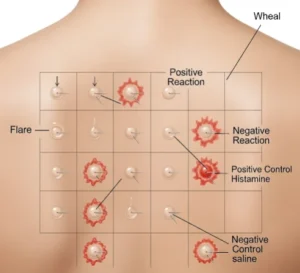Overview
DiGeorge Syndrome, also known as 22q11.2 deletion syndrome, is a rare genetic disorder caused by a small missing piece of chromosome 22. This condition affects multiple systems in the body, including the heart, immune system, endocrine system, and facial development. In Korea, advances in genetic testing, pediatric cardiology, and immune therapies have significantly improved the diagnosis and treatment of DiGeorge Syndrome. Multidisciplinary care is available at leading Korean hospitals, ensuring comprehensive management for affected children.
What is DiGeorge Syndrome?
DiGeorge Syndrome is a congenital disorder resulting from a deletion on chromosome 22. The condition has a wide range of symptoms, from mild to severe, depending on how much the deletion impacts development. Many children with DiGeorge Syndrome have congenital heart defects, immune system problems, and learning difficulties.
Symptoms
- Heart defects (e.g., Tetralogy of Fallot, interrupted aortic arch, ventricular septal defects)
- Frequent infections due to poor immune function
- Cleft palate or abnormal palate structure
- Delayed growth and development
- Distinctive facial features (small chin, low-set ears, wide-set eyes)
- Learning disabilities and behavioral issues
- Hypocalcemia (low calcium levels causing seizures or muscle spasms)
Causes
- Caused by a deletion on chromosome 22 (22q11.2 region)
- Most cases are sporadic, but it can also be inherited from a parent carrying the same deletion
Risk Factors
- Family history of 22q11.2 deletion syndrome
- Parents carrying the genetic mutation
Complications
- Severe congenital heart disease
- Repeated infections due to immune deficiency
- Seizures and muscle problems from low calcium
- Speech and learning delays
- Increased risk of psychiatric disorders (such as schizophrenia or anxiety disorders in adolescence/adulthood)
Prevention
There is currently no prevention for DiGeorge Syndrome, but:
- Genetic counseling for families with a history of the condition
- Prenatal testing in high-risk pregnancies
Treatment Options in Korea
Diagnosis
Korean hospitals use:
- Genetic testing (FISH, microarray, or next-generation sequencing) to confirm the 22q11.2 deletion
- Echocardiography for congenital heart defects
- Blood tests for immune system function and calcium levels
- Developmental assessments for speech and learning delays
Medical Treatments
- Calcium and vitamin D supplements for hypocalcemia
- Antibiotics and antiviral therapy for frequent infections
- Immunoglobulin replacement therapy for immune deficiencies
- Speech and occupational therapy for developmental delays
Surgical or Advanced Therapies
- Heart surgery for congenital heart defects (common in Korean pediatric cardiology centers)
- Cleft palate repair surgery
- Thymus transplant or bone marrow transplant (in rare cases of severe immune dysfunction)
Rehabilitation and Support
- Long-term developmental therapies (speech, occupational, physical therapy)
- Educational support programs for learning disabilities
- Psychological counseling for behavioral or psychiatric issues
- Family support groups and guidance in pediatric hospitals













